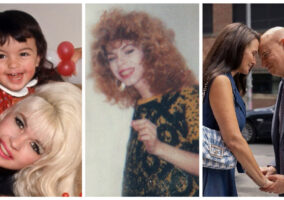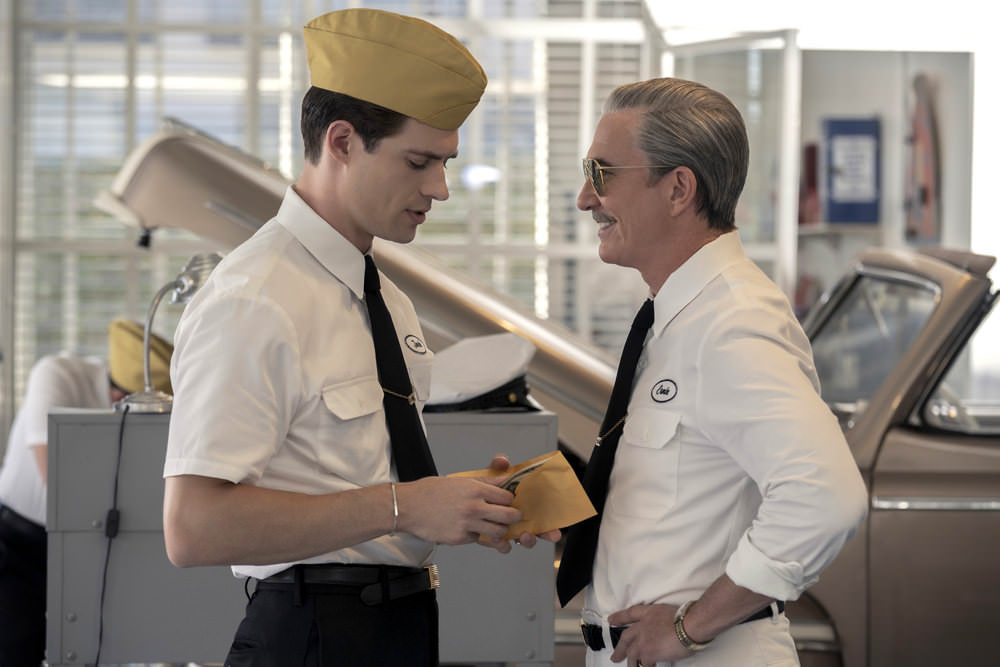
Hollywood, Ryan Murphy’s generically named, much-awaited new limited series for Netflix dropped today. Set in post-War Hollywood, the first three episodes (which we are reviewing here) set up and begin telling the tales of a series of dreamers and strivers as they come up against the already massive and nearly un-scalable Hollywood machine of agents, casting directors, studio heads, publicists and entertainment journalists. The setting and time period could not be more perfect for Murphy’s particular brand and aesthetic, which we can sum up as “the pop culture obsessions of a white Generation X gay man.” From Popular and Glee rewriting the pains of high school social development into something bitchy and dance-able, to the high camp of American Horror Story and Feud: Betty and Joan, Murphy has (quite admirably, we note) made a career out of the bitchy, dishy topics of discussion at your average gay male brunch table or Datalounge thread.
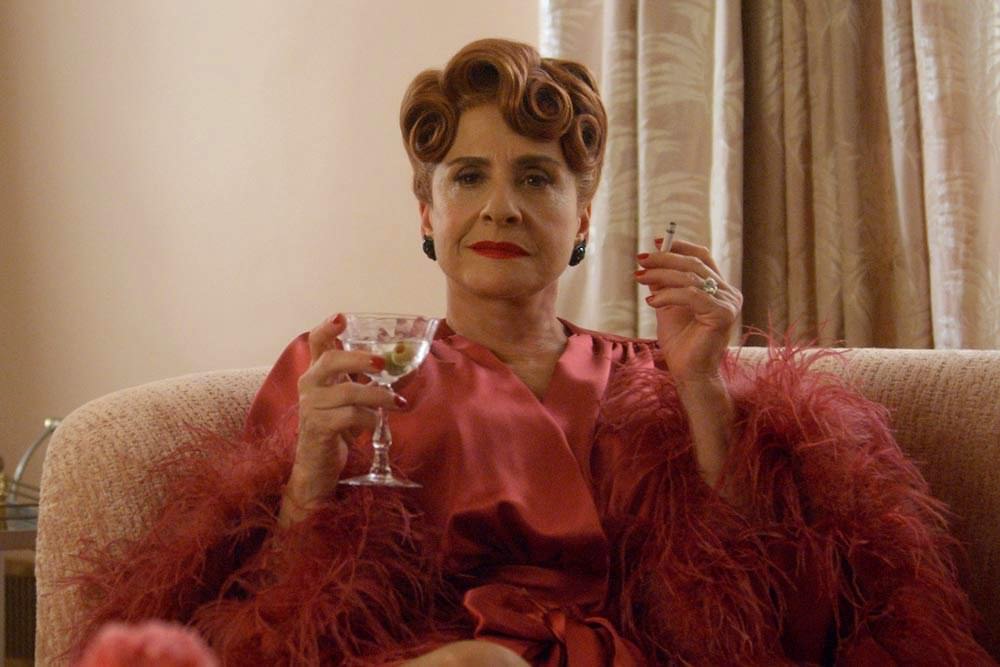
Everything you could want from a Ryan Murphy series about old Hollywood is here: grande dame divas like Patti Lupone and Holland Taylor, swanning about in ornately styled wigs and slashes of jungle red lipstick, beautiful young men like David Corenswet as a returning GI with great bone structure and a dream or Jake Picking as a deliciously young, dumb and horny Rock Hudson or Jeremy Pope as a talented and untested screenwriter who turns tricks on the side – all of whom are naked or in their underwear in roughly 40% of their scenes. You get stunning set design and costume design. Delightful cameos from Old Time Hollywood divas like Vivien Leigh, Noel Coward and Tallulah Bankhead, dropping by scenes to more or less quote their Wikipedia entries at us. And if that was all the show offered, it might be enough for a certain type of audience. But Murphy and co-creator Ian Brennan have a much more ambitious idea in mind with this traipse through yesteryear. While it’s true they want to show you the seediest under-side of this world, which is not the most original spin on this time and place, they also want to pose a series of what-if questions about what this world might have been, had a few people made a different choice.

So far, there are three main storylines running, all of which intersect by the third episode. There’s Jack, the good-looking ex-GI with a pregnant wife, who finds that the pathway to his Hollywood dreams will lead him straight to Ernie, who operates a gas station and male prostitution ring (and is based on Scottie Bowers, who wrote a book about his time as a Hollywood gigolo). There’s Roy Fitzgerald, the big, dumb stud who will become Rock Hudson some day, thanks to the efforts of his abusive and exploitive manager, Henry Willson. And finally, there’s Raymond, played by Darren Criss, the biracial screenwriter who wants to revive Anna May Wong’s career and who lives with his girlfriend Camille, a black ingenue in the studio system. There’s also Rob Reiner as a studio head with Patti Lupone as his long-suffering (and gigolo-hiring) wife and Samara Weaving as their bratty daughter, trying to make it as an actress without her parents’ help. Most of this tracks with what we know about Hollywood at this time, even if some of it comes off a little fanciful, but it’s clear that Murphy wants to diverge from Hollywood’s racist, homophobic and misogynist history in order to show a world where gay black sex workers can get their scripts greenlighted by studio heads or young black actresses can swan around the studio commissary trading barbs with young white actresses as they vie for the same parts. They want a world where gay men and mature women band together to use their considerable power to make society-defying moves. They want a world where Anna May Wong didn’t have her career ruined by racism and Rock Hudson didn’t spend the rest of his life in the closet. And we have never asked “What is the POINT to all this?” so much while watching a show.
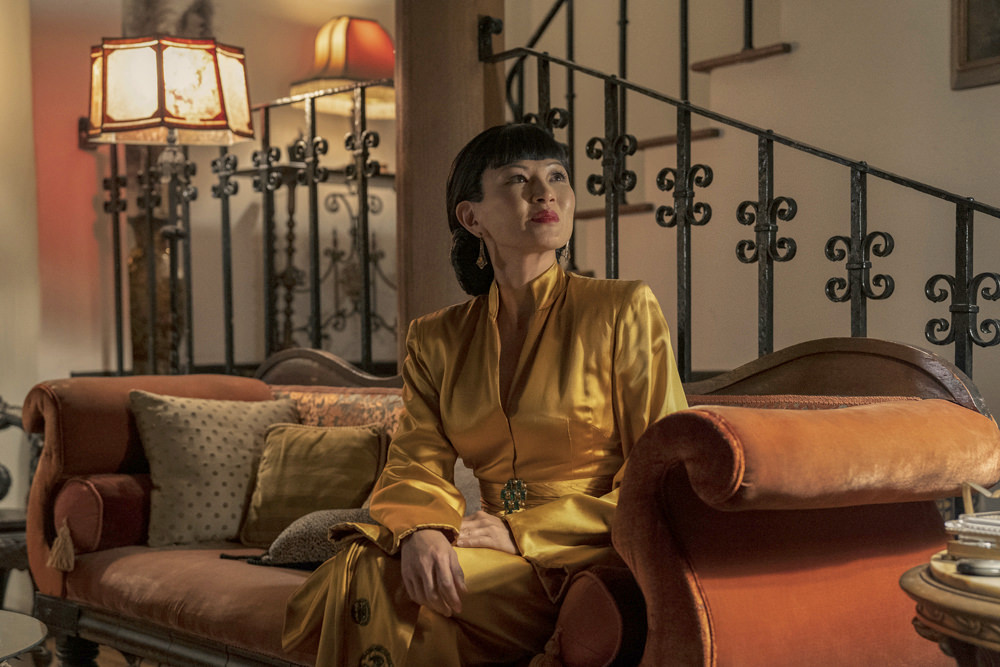
We don’t mind the idea of an alternate take on history. If you want to produce a show where the Axis powers won the war or a movie where Sharon Tate wasn’t killed by the Manson family, there are things about those scenarios and situations that can be explored and, in the hands of a talented creator, reveal truths about the world we live in. But so far, we really don’t see the point in trying to rewrite the lives of real people like Anna May Wong or Rock Hudson to make them feel more triumphant or less disappointing to a modern audience. It doesn’t feel like a loving tribute to their lives and struggles. It feels like an exploitation of them. We don’t claim any personal knowledge of Rock Hudson, but when the fictional version of him fought off Noel Coward to declare his love for his black boyfriend, we immediately thought, “Rock Hudson would absolutely cringe at this, if not be outraged by it.”
Aside from the relative blandness of most of the storylines, the biggest issue with these first three episodes is how meaningless these diversions from history tend to be. It’s not as if we’ve learned anything about Rock Hudson by having him come out of the closet nearly forty years before he actually did. Laura Harrier plays Camille, a character with deep roots in Hollywood history: the talented ingenue who happened to be black and was forced to play comedic maid roles. There are a million of these stories in Hollywood’s past and it makes fine sense to highlight one here. She also, however, lives with her bi-racial white-passing boyfriend and eats in the studio commissary along with all the white actors, two things no working black actress would ever have been allowed to do at that time. She even has ambitions to be cast in roles written for white actresses and openly stakes her claim to them, something that would have gotten any black actress fired and banned from the lot at the time. These anachronistic scenes are then followed by historically accurate ones of her being forced to play comedic maid roles. It’s impossible to reconcile both takes in one story.
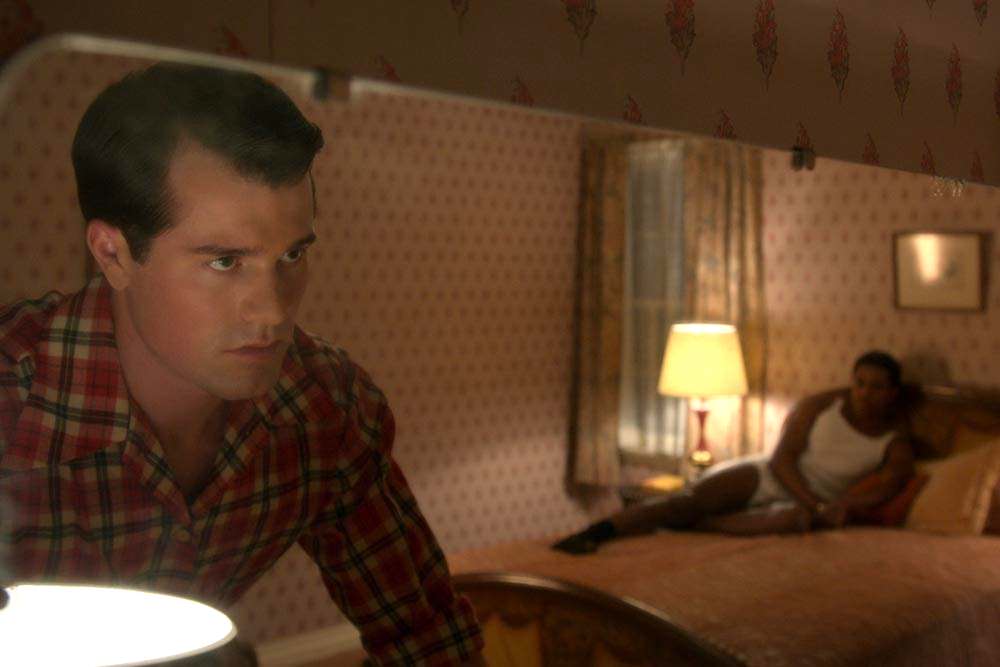
We wish we could say the show was a pleasant diversion but naked men aside – and there are a lot of them – there’s just not much charm to be found here. Hollywood is a grim affair, more akin to Murphy’s American Horror Story than his Feud: Bette and Joan – although you can clearly see the DNA of this show forming in the production of that one.
The major set piece of these first three episodes is a party at legendary director George Cukor’s house, where all of the bubbling storylines come to a head, largely fueled in one way or another by male prostitution or male nudity. Strip these scenes of the titillation, the homoerotic imagery, and the snappy way in which they’re shot and directed (which is, admittedly hard to do since that’s pretty much the entire description of these scenes), and you’re left with scene after scene of hot, semi-naked men being sexually exploited if not sexually assaulted. And it’s kind of hard to shake the notion that Murphy is spinning a tale of Hollywood that exploits the bodies of men because he thinks it’s hot and because he knows if he told the much more accurate story of the history of Hollywood exploiting the bodies of women, he couldn’t get away with making it sexy. Young women being forced into prostitution or sleeping with studio figureheads old enough to be their grandfathers would be a sad and tawdry thing to watch, but Murphy seems to think it’s all great fun if you switch them out with studs in tightie whities. Again, there’s no way to reconcile scenes of clear and obvious sexual exploitation with Murphy’s need to show as many hot naked men as Netflix will let him get away with. It’s an unworkable dichotomy that comes off more and more like blind hypocrisy as the series progresses.
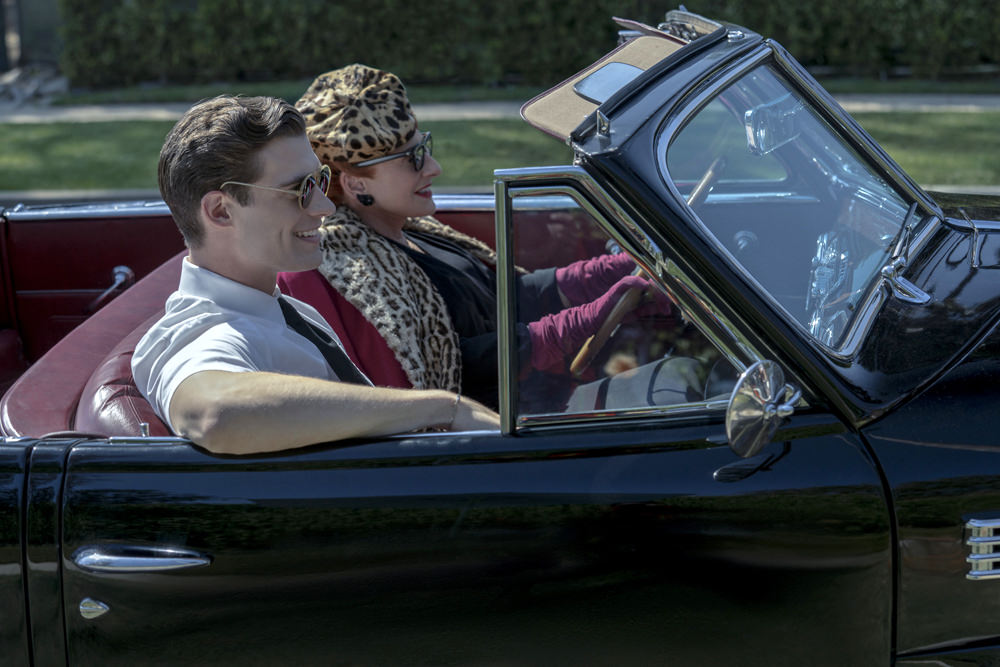
Are we going to keep watching? With a grim set to our jaws, we say yes, but we reserve the right to keep complaining as we go. Just look at how pretty it all is. And while we find it unlikely, given his track record, it’s possible there really is a point to all of this outside of the wishful thinking. Fine. We’ll be back.
Pop Style Opinionfest: Zooming Through It All Next Post:
Yea or Nay: Miu Miu Crochet Mules
Please review our Community Guidelines before posting a comment. Thank you!


